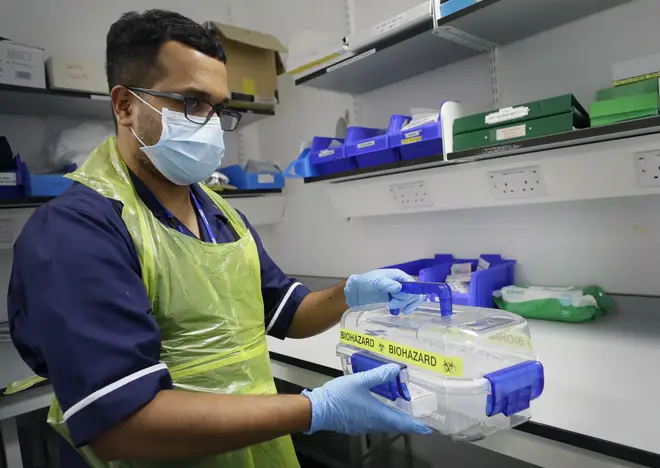
Ali Miraj 12pm - 3pm
9 August 2020, 10:33

Just over half the UK population would definitely get a coronavirus vaccine, with “damaging” misperceptions influencing people's intentions, research suggests.
King's College London and Ipsos Mori found people were more likely to refuse a potential vaccine if they held beliefs, attitudes or values that were sceptical about science and authority, rather than concern about the pandemic itself.
The study, based on 2,237 interviews with UK residents aged 16-75, found that one in five (20%) would be fairly likely to have a coronavirus vaccine if one becomes available, while one in six (16%) said they are unlikely to have it or definitely will not.
Of those questioned, only 53% said they would be certain or very likely to get a vaccine against the virus.
Young people were twice as likely not to want a vaccine, with 22% of 16 to 34-year-olds saying they would not have one - compared to 11% of 55 to 75-year-olds.

Vaccine trials: Scientist explains how they work and when we can expect results
People who believe face masks are bad for people's health and do not reduce the spread of the virus were among those who disagreed with a vaccine.
Of those who said they would not get one, 34% believe the government is trying to control the population by getting them to wear masks and 36% think “too much fuss” is being made of the pandemic.
Where people get information about the virus was also influential, with 27% of people who get their news from WhatsApp claiming they would be unlikely to get a vaccine.

‘This is for the greater good’: LBC speaks to woman taking part in covid-19 vaccine trial
Professor Bobby Duffy, director of the Policy Institute at King's College London, said: “Misperceptions about vaccines are among our most directly damaging beliefs, and they're clearly influencing people's intentions during the coronavirus crisis.
“While one in six in the UK say they are unlikely to, or definitely won't, get a potential vaccine against Covid-19, this rises to around a third or more among certain groups, with a clear link to belief in conspiracy theories and mistrust of government, authority and science.
“Vaccines are one of our greatest achievements, and there is a great deal of faith that we'll eventually develop one for Covid-19 - but more still need to be convinced of how important it could be for ending this crisis.”